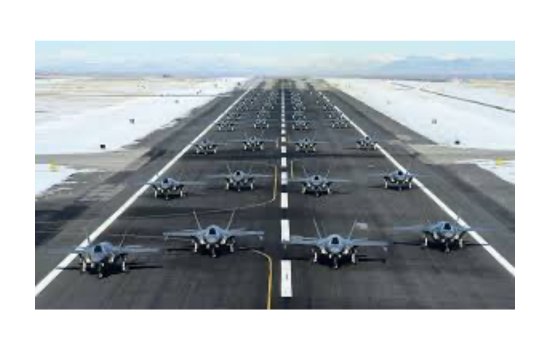Jerry Hendrix
National Review, Nov. 30, 2023
“We find ourselves today facing a significant probability of global military cataclysm, and we are not ready.”
The United States faces an imminent threat to its national security. Two authoritarian great powers, China and Russia, are actively moving to undermine its position as the leader of the free world, a phrase that once had real meaning but is now at the edge of black comedy. Additionally, despotic powers such as Iran and North Korea are launching small- and large-scale attacks against the American alliance system even as all the members of this modern version of the World War II Tripartite Pact between Germany, Italy, and Japan seek to sow conflict and diminish domestic support for the alliance system. Finally, there are rising concerns about the ability of the United States to meet its own defense needs even as we grant military aid to Ukraine and Israel.
In a recent Oval Office address to the American people, President Biden stated that we are ready to serve as “the arsenal of democracy” for the world. This is laughable. The nation’s defense-industrial base has shrunk considerably, and weapons that are being shipped to friends and allies cannot be replaced in the U.S. inventory for years to come. How did we land in this sorry state, and what should we do about it?
In 1993, the leaders of the nation’s main defence companies were summoned to the Pentagon for a dinner with Secretary of Defense Les Aspin and his able deputy William Perry. The topic under consideration was kept secret until the dinner began. After soup was served, Perry, who had first risen in the Carter administration as the Pentagon’s chief technologist, stated that the nation’s shrinking defense budgets could no longer support the industrial base and that the CEOs in attendance faced a decision: consolidate or die. Spoons dropped into soup bowls, and all small talk suddenly, awkwardly died.


